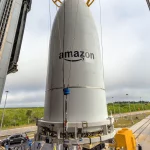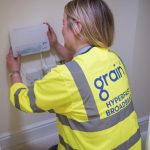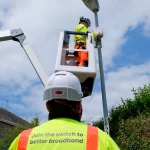Ofcom Consult on Alternative UK Pricing for Openreach’s UK Fibre Broadband Products

The UK telecoms regulator, Ofcom, has today proposed changes under their 5-yearly Telecoms Access Review 2026 (TAR) to how they set charge controls and regulate the pricing of certain Openreach based fibre broadband (FTTC/P) products, such as the regulated 80Mbps (currently 40Mbps) wholesale tier and connection fees for FTTP lines.
The proposals are designed to reflect Ofcom’s effort to continue setting regulation that promotes investment and competition (including maintaining a stable regulatory environment for those investments already made), while also providing protection to consumers in certain parts of the UK as competition develops.
As part of the above, Ofcom proposed in March 2025 to continue to set flat, inflation-adjusted prices for a “basic superfast broadband” product (80Mbps download and 20Mbps upload), whilst allowing flexibility on pricing for other speed services. This meant the wholesale price of the 80Mbps tier to ISPs couldn’t rise by more than inflation each year.
Advertisement
The measure is due to be applied to both semi-competitive areas (Area 2 – c.90% of the UK) and non-competitive areas (Area 3 – the final 10%), which is roughly the same approach as already exists for Openreach’s older and slower 40Mbps (10Mbps upload) tier on FTTP (full fibre) and FTTC (part fibre) lines.
However, the regulator has today launched a “narrow consultation“, which specifically focuses on an alternative approach to setting charge controls for the 80Mbps product. “Openreach has suggested that, rather than Ofcom imposing charge control regulations on its 80/20 product, they instead amend their contracts with customers to achieve the same outcome,” said Ofcom, which views the proposal as being “likely to achieve similar outcomes to the charge control and therefore could be a more proportionate way of meeting our objectives.”
Separately, Ofcom are also consulting on proposals to provide greater certainty and stability by allowing Openreach to continue charging Fibre to the Premises (FTTP) connection fees in line with the current Equinox discounts. “Specifically, we are proposing a carve out to the rules on geographic pricing, which would allow Openreach to maintain different connection charges in postcode sectors that move between regulatory areas from April 2026 — under certain clearly defined circumstances“.
Ofcom Statement
• Contract Focused Approach – we are consulting on whether to rely on Openreach’s long term supply agreements, rather than charge controls, to provide effective price protection for the anchor product where they provide sufficient certainty.
We consider that this approach could meet our objectives but invite stakeholder views on this. As part of this consultation, we have published a letter from Openreach setting out proposed contractual waivers, amendments and price list notifications that would give effect to this approach.
• FTTP 80/20 connections (where copper-based services are not available) – if we decide not to adopt a Contract Focused Approach, we would revert to considering the charge control approach proposed in our March 2025 Consultation. We therefore also propose some changes to this approach in relation to the control on FTTP connection charges.
Specifically, were we to adopt a charge control approach, we propose to adopt separate single service controls for each FTTP 80/20 connection service type and incorporate a £20 uplift into the first year of the control for those products where such an uplift is allowed under Openreach’s existing contracts.
• Geographic discrimination prohibition – Under Openreach’s Equinox Offers, FTTP connection fees differ between Area 2 and Area 3 (as defined in the WFTMR21). If the market boundaries in our TAR 2026 Statement change from those in the WFTMR21, then from 1 April 2026, these connection fees would vary within the newly defined WLA Area 2. This would in principle be subject to the proposed geographic discrimination prohibition.
To reduce the risks of market disruption and regulatory uncertainty, we propose a specific carve-out from the geographic discrimination prohibition. The carve-out would permit geographic differences in connection charges, where such differences reflect the terms of the Equinox Offers and also align with WFTMR21 geographic market boundaries. This proposal would apply under both a Contract Focused Approach and a charge control approach.
The move for Openreach’s 80Mbps tier could be seen as a way of softening the regulation on the incumbent (something that will happen as market competition grows), while still achieving broadly the same end result for consumers. Openreach would also have “no ability to unilaterally change” the conditions during Ofcom’s 5-year market review period, until 2031.
Advertisement
At present, the regulator has not made a final decision on what approach they will take, but the outcome is expected to be revealed alongside their final TAR statement in March 2026.
Mark is a professional technology writer, IT consultant and computer engineer from Dorset (England), he also founded ISPreview in 1999 and enjoys analysing the latest telecoms and broadband developments. Find me on X (Twitter), Mastodon, Facebook, BlueSky, Threads.net and Linkedin.
« Openreach Offers Free FTTP to UK Fixed Wireless Broadband ISP Users






















































I think it time for Ofcom and Openreach to bring down the pricing cost for SoGEA 40/10 @ £15 a month and SoGEA 80/20 @ £20 a month with no inflation price rise and no more than 12 months contract with free connection fee and no cease fee after the contract has ended.
What’s your commercial and market analysis to support that position? Specifically, what impact do you think your proposal will have on encouraging a move away from copper and towards fibre broadband?
I think they should pay people £20 a month for using SOGEA, with a £500 signing bonus, 36 month contract and inflation + 100% payment increase every month.
I know the ship has sailed, but if only we’d sorted out our ridiculous terminology at the outset. The confusion between “fibre” and “full fibre” lives on, in the minds of many consumers, and continuing to call 80/20 “superfast” in 2025 is obviously silly. Superfast, ultrafast, megafast, gigafast, whoop – all meaningless! And I wonder what percentage of the population know what SOGEA means 🙂
End customers don’t buy SOGEA, it’s a product sold to ISPs – so as long as they know what it is there’s very little issue.
SOGEA is a Copper Connection, it is used for Landline Phones mainly,
it will no longer be in Operation when all the Copper is stripped out
between 2026 and the 2030’s including the Closing of the Exchanges
Literally the entire point of SOGEA was no regular landline. They’re an FTTC product with no copper path to anything that’ll give a dial tone. The phone services provided over them are VoIP same as FTTP.
Just to be clear, a little over 100 exchanges will has closed by 2030 and many of those will still have active FTTC customers on their cabinets
This is hardly groundbreaking and merely a half-hearted token effort at deregulation.
As to preserving competition in the sector; is Ofcom going to start propping up those AltNets that have become zombie businesses with too much debt to survive an economic recession and/or a reset of the financial markets?
To preserve competition in the sector, Ofcom will at some point have to address issues that prevent more businesses in the sector from making a healthy, sustainable and profitable business model.